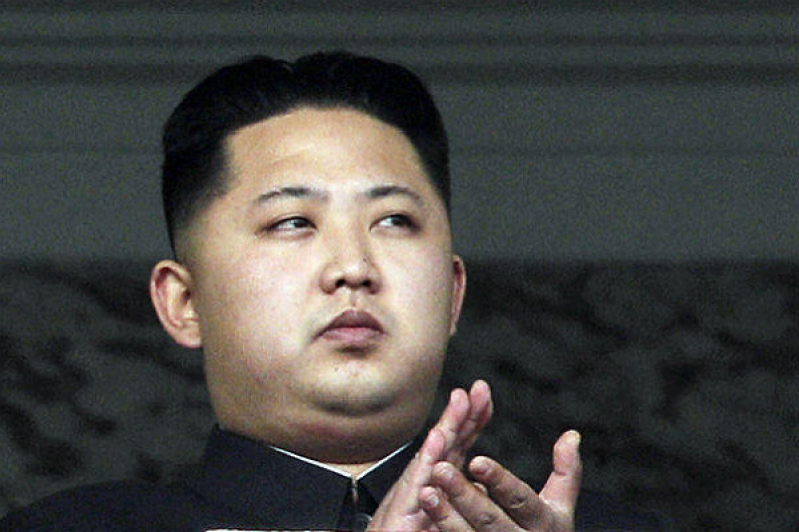
The isolated country of North Korea has detained a Canadian pastor, releasing video footage on Monday that showed him confessing of crimes against the state. The Communist country also has an uneasy relationship with Christianity.
According to a report published by Reuters, 60-year-old Pastor Hyeon Soo Lim, head of the 3,000-member Light Korean Presbyterian Church in Toronto, went to North Korea in January 2015 on a routine humanitarian visit. He spoke to a light crowd at Pyongyang's Pongsu Church and appeared to read from a script.
"The worst crime I committed was to rashly defame and insult the highest dignity and the system of the republic," Lim said in the video on Sunday.
Reuters reported that the video was released by a semi-official North Korean propaganda website. The state's official news agency also noted that Lim confessed to crimes aimed at overthrowing the state last week.
"Pongsu Church is one of four state-operated churches in the capital of a country that espouses freedom of religion but effectively bans it," Reuters wrote.
According to Reuters, North Korean media claimed that Lim was attempting to drive the regime to a collapse "with the love of God." They quoted him as saying that his main purpose was to "overturn its social system by taking advantage of the hostile policy against it sought by the South Korean authorities and set up a base for building a religious state."
"Lim has visited North Korea more than 100 times since 1997 and has helped establish an orphanage and a nursing home there, according to the church," Reuters wrote. "He has lived in Canada since 1986 and is a Canadian citizen."
Reuters added that Canada suspended diplomatic relations with North Korea in 2010. The isolated country has been known to crack down on Christian groups, and several American Christians have also been detained there.
According to a report from Stephen Evans of BBC News, Christian groups have cited North Korea as a place where they have extreme difficulty spreading the gospel and face persecution. However, some have claimed that the oppressive state does tolerate Christians as long as no proselytization takes place.
"One person who attended a service at Chilgol Church told the BBC it seemed like a typical Anglican Church, with a small congregation of perhaps 20 people, many of them elderly women, and a choir (which he thought was rather good)," Evans wrote. "Bibles were bilingual, in English and Korean, and printed in South Korea."
According to BBC News, Chilgol Church is dedicated to the memory of Kang Pan-sok, the Presbyterian mother of Kim Il-Sung, North Korea's first leader. In Korean, Pan-sok means "rock."
"The Christian tradition would not have been alien to the founders of today's North Korean state," Evans wrote. "Take the Pyongyang University of Science and Technology which opened in 2010, which is funded largely by devout Christians from the US and South Korea."
One former teacher told BBC News that many of teachers in that university are devout Christians. In return for a high-grade teaching establishment, both the funders and teachers have inside access to North Korea should the country ever decide to open up to the outside world.
"They feel it is ripe for conversion when the regime changes and they are there for that moment," Evans wrote.
Evans pointed out that "the university is a very small and isolated part of North Korean life."
"The regime seems to fear that Christianity could spread as it has in South Korea and become an alternative power source, certainly an alternative ideology," Evans wrote. "There is no doubt that the government in Pyongyang is tough on outsiders who get into the country and distribute Bibles."
Evans cited an example of how brutal the regime could be to Christian outsiders.
"I personally know a missionary who was imprisoned in North Korea and who remains psychologically badly damaged by his punishment - which he will not describe because it was so traumatic for him," Evans wrote.
According to BBC News, the country takes a complicated view on Christianity.
"It is certainly true that anybody who wants to prosper in authoritarian North Korea will not get very far if they espouse Christianity strongly," Evans wrote. "But there are Christians, some out in the open, affiliated to the state-approved Korean Christian Federation and some unseen and uncounted."
One Westerner who lived in Pyongyang told Evans that the official "Christians" he met seemed to lack a strong faith.
"He was continually amazed by how superstitious the people were in all kinds of non-Christian ways and they had no fear of talking," Evans wrote. "Unthreatening, unorganized superstition is one thing in North Korea - organized Christian belief quite another."






